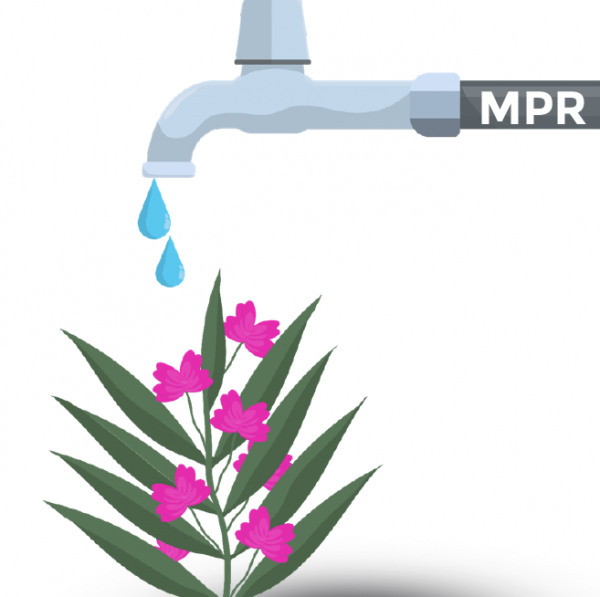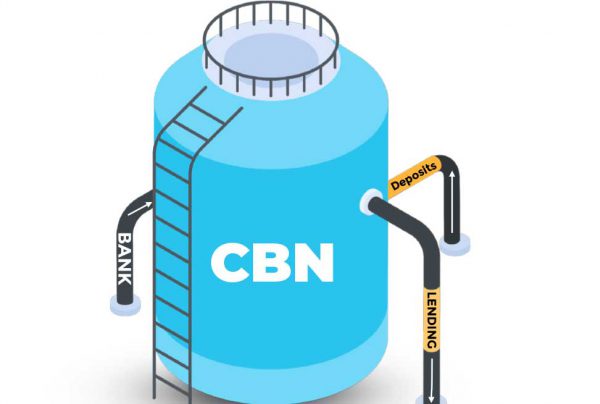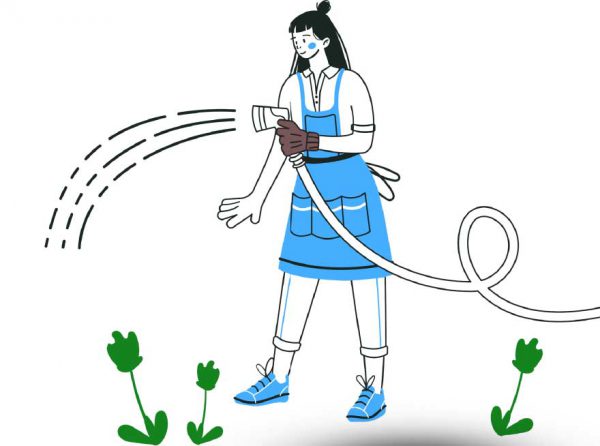Financial Tips
Imagine that instead of flowers and shrubs, you’re nurturing an entire economy, and instead of a watering can, you’ve got the Central Bank of…
March 8, 2024
Min Read
Credit Direct
You’re tending to your backyard garden, ensuring every plant gets just the right amount of water and sunlight to thrive. Now, imagine that instead of flowers and shrubs, you’re nurturing an entire economy, and instead of a watering can, you’ve got the Central Bank of Nigeria calling the shots.
In this blog post, we’re going to unpack the intricacies of monetary policy in Nigeria, using a simple garden analogy to help you grasp the concepts without breaking a sweat.
So, grab your gardening gloves and let’s dig in!
Monetary policy involves the central bank’s efforts to control how much money is circulating and the cost of borrowing it (interest rates).

Think of the economy as a garden and the central bank as the gardener. The garden’s health depends on the right balance of water (money supply) and sunlight (economic policies). If the plants (businesses and consumers) are not growing well, the gardener might decide to water them more (inject more money into the economy) or adjust their position to get more sunlight (implement policies to stimulate growth).
Alternatively, if the plants are growing too fast and risk depleting the soil’s nutrients (an overheating economy leading to inflation), the gardener might water them less (reduce the money supply) or provide some shade (tighten policies) to ensure steady, healthy growth. This way, the gardener (central bank) uses different tools to maintain the garden’s (economy’s) health.
The CBN Monetary Policy Committee (MPC) is like a team within the central bank responsible for setting monetary policies. This team meets every two months to look at how the economy is doing and then decides what to do about interest rates and other important financial decisions to help achieve the central bank’s goals.
The team includes;

The Monetary Policy Committee (MPC) can be thought of as the team of expert gardeners who gather every two months to assess the garden’s condition. They look at how well the plants are growing, check the soil moisture, and evaluate the weather forecast to decide how much water to give the garden or whether to adjust its exposure to sunlight. Together, they make crucial decisions to ensure the garden (the economy) thrives, adjusting their care techniques (monetary policy measures) to keep the garden healthy and productive.
The CBN monetary policy rate (MPR) is like the price tag the central bank puts on borrowing money. It’s a special rate that influences how expensive or cheap it is to get a loan. This rate is used by the central bank to give everyone a hint about how they feel the economy is doing.
The Central Bank of Nigeria (CBN) adjusts the MPR to either slow down things when prices rise too quickly (inflation) or to help the economy grow. By increasing the MPR, they make borrowing more expensive, which can help control inflation. By lowering it, they make borrowing cheaper, encouraging spending and growth.

The monetary policy rate (MPR) is like deciding how much to open or close the tap to water the garden. The central bank controls this tap to make sure the garden (economy) gets just the right amount of water (money). If the garden starts growing too wild (inflation is high), they close the tap a bit more to slow things down. If the garden needs more growth (economic boost), they open the tap wider.
In the latest CBN monetary policy, the central bank decided to close the tap a bit more, raising the MPR from 18.75% to 22.75%, to keep the garden healthy.
An asymmetric corridor is when the central bank sets different interest rates for commercial banks depositing money to the central bank versus when they borrow money from the central bank. This creates a window or range within which short-term interest rates fluctuate.

Imagine the central bank’s money as a large water tank. Banks can put water into the tank (make deposits) or take water out (borrow money). The central bank uses different rules for putting in versus taking out water to encourage banks to lend more to others instead of just storing their money. By adjusting the rewards for depositing and the costs for borrowing, the central bank guides how banks handle their money to ensure a balanced economy.
The CBN can reduce the interest rate offered on deposits to the lowest range of the asymmetric corridor to discourage banks from storing excess money with the Central Bank and it can increase interest rate to the highest range of the corridor to make borrowing from the Central Bank less attractive for banks.
They widened the gap, making it even less appealing to borrow and more appealing to deposit, by adjusting the corridor to +100/-700 basis points from the previous +100/-300 basis points.
The Cash Reserve Ratio (CRR) is like a rule that tells banks how much of the money they receive from customers they must keep as cash in a special savings account at the central bank. It’s used to help control how much money is moving around in the country and to keep banking system stable.
The Central Bank of Nigeria (CBN) adjusts this ratio to influence the economy. If they want less money circulating (to reduce inflation), they increase the CRR, meaning banks have to keep more money in reserve and have less to lend out. If they want to encourage banks to lend more (to grow the economy), they lower the CRR.
At the latest CBN monetary policy committee meeting, they decided to increase the CRR from 32.5% to 45.0%, meaning banks now have to keep more of their deposits in reserve, reducing the amount they can lend out.

In the garden analogy, the Cash Reserve Ratio (CRR) is like deciding how much water banks need to keep in their watering cans instead of using it to water the plants right away. This rule helps make sure there’s enough water available for later, keeping the garden’s ecosystem balanced.
The liquidity ratio also known as the liquidity reserve requirement is like a rule that tells banks how much of their money needs to be kept in easy-to-access forms, such as cash or treasury bills, to make sure they can quickly pay their bills or cover any sudden withdrawals. This is important for keeping the bank stable and trustworthy.
The Central Bank of Nigeria (CBN) uses this rule to control how much money banks can lend out. If the CBN wants banks to lend less (which can help control inflation), it increases the ratio, making banks keep more money in liquid form. If it wants to encourage more lending to help the economy grow, it lowers the ratio.
In February, the CBN decided to keep this ratio the same, at 30%, meaning banks need to continue keeping a certain amount of their money in forms that are easy to access.

In the garden analogy, the liquidity ratio is like the rule that determines how much water a gardener must always have ready in their bucket or hose — water that can be quickly used for any plants that suddenly need it. This ensures the garden remains lush and healthy, able to respond immediately to any dry spots or thirsty plants.
In short, when the Central Bank tweaks interest rates, it can affect how much you pay on loans, how much you earn from savings, and how appealing different investments are, impacting your daily budget and future financial plans.

The recent decisions by the Central Bank of Nigeria’s Monetary Policy Committee (MPC) reflect its commitment to maintaining economic stability. The adjustments in the monetary policy rate (MPR), asymmetric corridor, cash reserve ratio (CRR), and liquidity ratio are all strategic moves aimed at steering the economy toward sustainable growth while curbing inflationary pressures.
By simplifying the complexities of monetary policy, we hope to have provided an insightful analysis of how these policy changes ripple through the financial industry, affecting borrowing costs, lending opportunities, competition dynamics, and strategic planning for both banks and non-bank lenders.
Share this with a friend if you found this helpful in anyway!
Start your journey to financial freedom today.
The number one non-bank digitally-led lender that provides financial solutions to millions of customers.
Copyright © Credit Direct Finance Company Limited. Authorized and regulated by CBN.